Frederica Freyberg:
I’m Frederica Freyberg. Tonight on “Here & Now,” whistle blowers and impeachment. The latest political news from Washington. A closer look at the debate over efforts to land F-35 fighter jets in Madison. And our political panel provides an inside look at the wild week in Washington. It’s “Here & Now” for September 27.
Announcer:
Funding for “Here & Now” is funded by Friends of Wisconsin Public Television.
Frederica Freyberg:
A first look tonight at Washington in disarray. Democrats excoriating President Donald Trump over what they call damning allegations of using his power to solicit interference in the 2020 U.S. election. Allegations in a whistleblower complaint that says the president pressured Ukraine’s president to investigate Joe Biden’s son, using U.S. aid to Ukraine as leverage. The complaint also alleges an attempted White House cover-up. On the flip side: Republicans call it a hoax, fake news and a charade perpetrated by Democrats still angry over Donald Trump’s election. We will break it down, but first, a check in with one member of Wisconsin’s Congressional delegation U.S. Representative Mark Pocan, Democrat from the 2nd District. He joins us from Washington. Thanks very much for doing so.
Mark Pocan:
Thank you Frederica.
Frederica Freyberg:
What is your reaction to the phone call transcript and the whistleblower complaint?
Mark Pocan:
It’s nothing short of a bomb shell. We’ve been looking at the Mueller Report, the very extensive report about another foreign country trying to get involved in our elections and the president denying allegations there. Well in this case, he’s essentially confessing. He said he asked them to do him a personal favor of investigating a political opponent’s family. He admits that days earlier he blocked funding that Congress had approved to go to that same country and now we’ve got the whistleblower report. This really cuts out the middle man, the process of finding out if he did something wrong because he’s essentially confessed to it. That’s why the reaction has been so strong, not just from members of Congress but from the public.
Frederica Freyberg:
What do you think should happen now?
Mark Pocan:
Well we have to do the proper process, which the intelligence community is going to do. Eventually, very soon, the whistleblower themselves, he or she will come in and talk about what they wrote in that report, which again is a very strong report and then any other witnesses that may be involved will be brought there. But if the White House tries to play the same game they had with the Mueller Report where they don’t let witnesses come to Congress, we’re going to be able to move ahead because again, we have a smoking gun this time. And smoking gun’s name is Donald Trump and I think we can move forward pretty expeditiously.
Frederica Freyberg:
What stands out most to you in that whistleblower complaint?
Mark Pocan:
I think just the brazenness of the call. I mean even the notes from the call that he gave us. He’s asking for a personal favor. He brought it up a few times about going after the Vice-President Biden’s son, getting information. He brought up a weird conspiracy theory that’s in the QAnon world about somehow Ukraine, not Russia interfered in our elections. And then we know he withheld — tried to hold up the aid to that very country to get the leverage. And then when you read the whistleblower report about all the craziness with Rudy Giuliani, the personal lawyer of the president dealing with this rather than intelligence agencies. I mean this whole thing is a mess and really short of putting an “I did it” tattoo on your forehead, the president has pretty clearly explained what he’s done and I think that clearly is a violation of his oath of office and an impeachable offense.
Frederica Freyberg:
The ranking Republican on the intelligence committee calls this process a “grotesque spectacle, a hoax and the lastest gambit on the part of Democrats to re-litigate results of the 2016 election.” What is your response to that?
Mark Pocan:
Yeah, you know I know they’re trying to spin but all they do is look dizzy. It’s not making any sense. And I think again, the public gets it. I mean the public is way smarter than politicians in Washington think they are. When the president admits he did a call, gives us notes that said he asked for this leader of a foreign government to do this. This is really in many ways what the Mueller Report was about but he didn’t fess up to. Now he’s fessing up to it. So I think the public is starting to see the pattern of what’s happening and we have to do our job now that we’ve made an oath to the Constitution and we have to make sure we hold the White House accountable.
Frederica Freyberg:
Why would the president himself release the call transcript and the complaint if he were worried about it?
Mark Pocan:
Because I don’t try to figure anything this White House does or this president does. Nothing really seems rational. You get the tweets when I do. That’s how we get information from this White House. But I know there was a controversy whether or not they should release it. I think there’s still more. I mean part of the whistleblower complaint that is this was put in a special safe for highly-classified information. Instead, this was political stuff he did that is likely a violation of office. There’s so much, I think, more we’re going to find out. But already just the information we have this week is really damming, I think, for the president
Frederica Freyberg:
In terms of that secret place where they put this, according to White House officials, this is in the whistleblower complaint, this was not the first time under the administration that a presidential transcript was placed into this code-word level system solely for the purpose, he or she says, of protecting politically sensitive rather than national security sensitive information. How concerning is that?
Mark Pocan:
Very concerning. I mean many of us remember what happened when President Nixon was president and what happened at that time. The fact that the president does it so brazenly and did it a day after Mr. Mueller testified on Congress and unfortunately didn’t deliver a Broadway play performance. The president thought he could get away with even more. I think this time he just — his brazenness just went too far and the American public can really see the fact of what’s going on and what I think many of us have known has been going on for way too long.
Frederica Freyberg:
Representative Mark Pocan thanks very much.
Mark Pocan:
Sure, thank you.
Frederica Freyberg:
We invited several Republican members of Congress to appear tonight. They declined. 6th District Republican Representative Glenn Grothman provided a statement however saying, “A broad discussion of corruption with the President Zelensky is certainly appropriate, considering the amount of foreign aid Ukraine receives. I do think there are legitimate questions to be raised as to why Hunter Biden was employed by Ukrainian-based gas company, Burisma Holdings, at the same time his father over saw Ukrainian relations for the Obama administration.
Moving on now, in a timely bit of classroom instruction, our next guest has been teaching his political science students this week about the impeachment process. UW-Madison Professor David Cannon joins us now to help break it down. Thanks for being here.
David Cannon:
Good to be with you.
Frederica Freyberg:
First of all, what stood out to you in this whistleblower complaint?
David Cannon:
So a lot of it had come out already earlier in the week. We knew about the phone call. We know about basically what had happened. Then when the transcript was released, we had the details of that. The one thing that really jumped out to me I think and was the headlines in most papers today was the cover-up angle of this. That the people in the White House right after the conversation were very concerned about the content of that phone call. And then immediately put it to lock down mode on this server that was password protected that only top-level people had access to. I think that was a really strong indication they knew there was something problematic in this phone call. Calling it a cover up, I think, is basically accurate in terms of how they’re dealing with this.
Frederica Freyberg:
Is what’s happening unprecedented as has been described?
David Cannon:
It really is. If we take it at face value what appears to be happening here of a president asking a foreign country to dig up dirt on this main rival in the upcoming presidential election. So basically using the power of the presidential office and potentially undermining foreign policy and security by withholding $400 million in aid to a critical country while this whole process unfolds in terms of will Ukraine do his bidding and do the investigations that he’s asking for in this phone call. That really is unprecedented.
Frederica Freyberg:
Can it not, though, be described as the president describes it as a witch hunt?
David Cannon:
I don’t think so. I mean just based on the facts we know already and that the president has admitted to, that he did bring up Vice-President Biden and Hunter Biden in this phone call. That I think is uncontested in terms of the facts. I think where people differ in how they’re viewing this, is whether or not there needs to be a fairly explicit quid pro quo in terms of you do this for us and we’ll help you out. Or is just the asking enough? You do get differences of opinion there. Where some people are saying without the evidence of that quid pro quo then we really don’t have an impeachable offense. Where others say just the asking alone was enough.
Frederica Freyberg:
How much does it matter, in your mind, that the whistleblower complaint contains secondhand observations only?
David Cannon:
One thing that I think really has come out in last just 24 hours is that the CIA operative, someone who has inside knowledge about Ukraine, is the whistleblower. So someone that does have detailed foreign policy knowledge of the area. That adds to the credibility. But I think it is a legitimate question to bring up in terms of was this all just hearsay, secondhand? The person in the complaint says I was not in on the phone calls. This is just from other things I heard from people who were involved. But given the person’s position as sort of the center of digesting all of the critical information from that region, it really is very well situated for making this whistleblower complaint because they really know all the strategic questions involved.
Frederica Freyberg:
In terms of the process, you’ve been instructing your poly-sci students this week on the impeachment process. What are the Cliff Notes? What should our viewers know?
David Cannon:
So I say the two key things to know. One is that there’s often confusion about the word impeachment itself. Some people use that to mean removal from office. But it really is a two-step process. The first is the House impeaching with a majority vote. That’s like the charges against the person who is accused of the offenses. Then the trial goes to the Senate. That’s where, by a two-thirds vote, removal would happen if the president would be convicted in the Senate. So impeachment — like Bill Clinton was impeached but not removed. So we could see that happen again this time potentially where President Trump might be impeached by the House by a majority vote of the Democrats but then not removed if Republicans don’t get on board. You’d need 20 Republicans to vote for conviction in order to remove the president. That’s the first point. The second is in terms of what it takes to get impeachment charge and there the Constitution’s very sparse in its language, just bribery, treason, high crimes and misdemeanors. And so what actually is defined as an impeachable offense comes down to what a given House of Representatives says it is at a given point in time. There’s no crime that has to be involved. It’s just if there is a violation of public trust.
Frederica Freyberg:
All right. We need to leave it there. David Cannon. Thanks very much.
David Cannon:
Good to be with you.
Frederica Freyberg:
In tonight’s closer look, the U.S. Air Force is deciding whether to choose Madison’s Truax Field as a location for its F-35 fighter jets. Truax is home to the Air National Guard’s 115th Fighter Wing and its current complement of F-16 aircraft. Four other locations across the country are in the running for 18 F-35 fighters, which fly both federal and state missions. But the Air Force is running into controversy in Madison because of its own environmental impact statement that found the change in the noise environment associated with the F-35s would be considered “significant in the area surrounding the air field and there would be significant disproportionate impacts to low income and minority populations as well as children.” But supporters of locating the F-35s in Dane County say the economic impact of having them here would be significant too. And the base could close when its aging fleet of F-16s retire. This week the Air Force announced it would extend public comment for 30 more days. We hear now from both sides of this debate. Chris Arenz works in favor of the F-35s at Truax. He’s the executive director of the Badger Air Community Council. Truax Field falls into State Representative Chris Taylor’s district. She’s opposed to the effort. Thanks to both of you for being here.
Chris Arenz, Chris Taylor:
Thank you.
Frederica Freyberg:
As we start out, right out of the gates, just a big picture and first to you, Chris Arenz, why would locating the F-35s here be beneficial in your mind?
Chris Arenz:
Well, as you said in your opening, the economic impact here in the area is $100 million annually, supports 1200 jobs and the F-35 would secure that mission for the next 30 to 40 years. Absent this mission, I can tell you first hand having thrown the current F-16s, their shelf life is coming to an end. So if we don’t get a new mission such as the F-35, that puts the base at jeopardy for closure.
Frederica Freyberg:
And Representative Taylor, why do you think this would be so detrimental?
Chris Taylor:
Well look, I’m relying on the environmental impact statement that the Air Force put out. And it shows about 2200 individuals and about 1000 residences are going to be impacted. These are very loud jets. This is — they are significantly louder and that’s what the Air Force has said. They’re going to be running approximately 2300 additional operations. And we know, the Air Force is also telling us this has a disparate impact on communities of color, kids, low-income individuals. We already struggle with inequities in our community. We have some of the most significant racial inequities. We already know schools are right around this zone of noise. We know the Air Force is telling us kids are impacted by this type of noise. Nowhere in the environmental statement does the Air Force say Truax will close if the F-35s don’t come here. In fact, their own analysis say operations will continue. They point to a negligible economic impact. We will get about 64 jobs.
Frederica Freyberg:
Let’s let Chris Arenz weigh in on this. What about that? What about this whole concern and the environmental impact statement that did say that the noise would cause significant issues?
Chris Arenz:
We believe that the environmental impact statement is overstating the number of operations that are going to occur. It even says directly in there this is the maximum potential impact. Worse case scenario. As an operator, I can break down all of those numbers, the 6222 operations. Part of that assumption is all flights will fly out of Madison. Which just isn’t true. In fact right now, our F-16s are deployed to Afghanistan. So those deployments will continue and that operations will reduce it 20% right off the bat. So we’ve asked, in fact our input to the commentary for the National Guard bureau, to give us a most likely scenario. I think with overstating the number of operations in there, I agree, it does worry, I think unduly, the neighborhood. We need a better vision of what those noise contours look like.
Frederica Freyberg:
What about this whole issue of afterburners? I read a lot about that. When they take-off, it’s this super powered burner and that’s even louder. Is that accurate?
Chris Arenz:
That is. Current operations with the F-16 use it approximately 60% of the time. That increases their speed for take-off. That’s really due to weather conditions. Essentially the hotter it is, the more they have to use it. With the F-35s, it has a more powerful engine which requires only 5% or less afterburner for take-off.
Frederica Freyberg:
When Chris Arenz says these planes won’t be operating at those kinds of levels because they’ll be elsewhere or they’ll be deployed, what about that? Does that soften the blow for you?
Chris Taylor:
No, because the Air Force was just asked this question by Congressman Mark Pocan. He asked them explicitly, is this going to be the number of operations? What about simulators? They came back to say this is the number of operations. They determine the number of operations. They have reaffirmed the number of operations predicted are as what they believe it to be.
Frederica Freyberg:
Now in terms of the noise levels in that neighborhood or neighborhoods, aren’t they already affected by Truax and the F-16s and otherwise the Dane County Regional Airport in terms of noise?
Chris Taylor:
Yes, absolutely but these jets are not just a little bit noisier. They are significantly noisier on every measure that was set forth in the environmental impact statement. For instance, it’s estimated when they are coming down and arriving in our city, it’s a 10 decibel increase. To the human ear, that’s twice as loud. We don’t have anything flying in our skies that are this loud.
Frederica Freyberg:
How loud is it? You know, I tried to read those decibel levels. What’s an example? You’re suggesting that children in schools, people in their homes, what are they going to hear?
Chris Taylor:
Sure, well in an area of my district called Carpenter Ridge Way, it’s estimated that basically a peek decibel to 114 decibels. That is a rock concert. In close proximity to that neighborhood is Hawthorne School. Hawthorne School has 68% of those kids are low income. 74% are kids are color. They already do hear noise. I’ve heard that from the teachers. But this type of jet is going to fly over their school. They don’t have air conditioning. You can’t mitigate a playground and the Air Force’s own study says children can be very much adversely impacted by airport noise. It decreases their reading. It has other horrible impacts on children.
Frederica Freyberg:
How much does that resonate with supporters of bringing in the F-35s in here?
Chris Arenz:
Absolutely and what I want to return to is we’re not disputing the number of operations that are listed in the EIS. We’re saying those operations won’t occur here in Madison. So because of that, that impact that is shown in the noise contours, which is a direct relation to how many, is inaccurate and is much smaller. So what we say is, we do not think it will have the impact that the environmental impact statement says.
Frederica Freyberg:
Just very briefly on this too, Representative Taylor says that — she doesn’t believe it’s accurate that if the F-35s don’t come here, that that air field would close.
Chris Arenz:
Yeah, that is absolutely the conclusion that will happen. In fact, it’s been stated by former secretary of the Air Force, Wilson in regard to Burlington, Vermont if that mission of the F-35 didn’t come there, that after the F-16s aged out, they would lose their flying mission.
Frederica Freyberg:
We’ll continue to watch this. Again, the public comment is open for another 30 days. Chris Arenz, thanks very much. Representative Taylor, thank you.
Chris Taylor, Chris Arenz:
Thank you.
Frederica Freyberg:
We return to now to the topic of the wild week in Washington. And for that we bring in our wild political panelists, conservative analysis Bill McCoshen and liberal political strategist Scot Ross. Thank you for being here.
Bill McCoshen, Scot Ross:
Thanks for having us.
Frederica Freyberg:
I’m going to ask you each right off the top, your reaction to this whistleblower complaint and the transcribed phone call? I’ll go first to you, Bill McCoshen.
Bill McCoshen:
It’s pretty similar to the whole Mueller Report, right? That was James Comey leaking to a friend who wanted to create a special council. So this was all created by hearsay. This whistleblower didn’t actually sit in the room. Didn’t read the transcript. Had no first-hand knowledge of what was said or what was done. It was all hearsay and that led to a big national story to the point where the Speaker of the House, Nancy Pelosi, who had been the adult in the room for the last nine months, finally says they’re going to open an impeachment inquiry before she’d even read the transcript or the whistleblower report. So I think it’s all politics.
Scot Ross:
The president of the United States solicited a foreign country to interfere in our 2020 elections and he utilized a promise of a meeting and financial aid in order to do that. It’s absolutely one of most, the grossest appalling displays of lawlessness we have seen come out of politics or government. The fact is, I appreciate where Bill’s coming from. He’s got the talking points. But the fact is —
Bill McCoshen:
I got the facts.
Scot Ross:
The fact is, the whistleblower came forward. Spoke to the intelligence committee’s Inspect General. The Inspector General went out and said this is credible, did the investigation and came back with that. It is not simply a “he said, she said.” It is not. It is absolutely not. He had direct and indirect knowledge of what was going on. Corroborated by numerous government officials and I think the case is incredibly strong and I think we’re seeing it because the president is reacting so harshly.
Bill McCoshen:
I think this is the flimsiest evidence in history for the establishment of an impeachment inquiry. By the way, on a process, they didn’t actually form an impeachment committee, which gives them additional powers to subpoena things. Things the president couldn’t block with executive privilege. So what they did was one step short of that. The reason is, all politics again. Nancy Pelosi did not want those 35 Democrats who won seats that were won by Donald Trump in 2016, these Democrats won those seats in 2018, which helped Democrats take the House. She did not want them to take a vote. Ron Kind’s on that list.
Scot Ross:
There are 12 Democrats who have not formally said, “I think he should be impeached.” That’s it. The Democrats are united in this because they are tired of the reckless lawlessness of Trump. O.J.’s book was “If I Did It.” Trump’s is “When I Did It.” He admitted that he had the call.
Frederica Freyberg:
What about that?
Bill McCoshen:
He gave up the transcript.
Frederica Freyberg:
Why did he?
Bill McCoshen:
He gave up the transcript. I mean I’ve read the transcript. It’s — there’s no there there. It’s the flimsiest evidence in history.
Frederica Freyberg:
All right. So speaking of this kind of acrimony, does this trickle down to the namely the 7th Congressional District race we’re about to embark upon? Do you think it does?
Bill McCoshen:
If it does, it’s a positive way. That’s Trump country. Donald Trump did better in the 7th District percentage-wise than any other district in the state of Wisconsin. There’s no evidence that that’s changed. The most recent Marquette poll still shows him very popular up north. I would expect Tom Tiffany, the front runner in that race and Jason Church, the new entrant into that race, to be strong supporters of Trump and the Trump supporters will turn out on December 30th.
Frederica Freyberg:
What do you think about voters in that district?
Scot Ross:
Couple things. One, for 40 years, until again, the maps were rigged in that place. But for a long time that was Dave Obey country. That was solid economic, Democrat, progressive country. The fact is that Tom Tiffany has been a nonstop advocate for policies that are hurting the people of the 7th CD and both of them are going to the — the two entrants in the primary are going to have to out-Trump each other.
Frederica Freyberg:
Well right because Tom Tiffany is a big backer of Trump and supporter of Trump.
Bill McCoshen:
Yeah, no question about that.
Frederica Freyberg:
Is Trump a safe bet at this point for Republicans?
Bill McCoshen:
There’s no question he’s a safe bet. He is a safe bet in the 7th Congressional District and the Duluth district across the border. He’s turned that Republican. In my entire lifetime, growing up in Superior, that was as Democratic as it got.
Frederica Freyberg:
I want to ask about this. Robin Vos today demanded that the governor change the date for primary in that race because Governor Evers set it for December 30, which is Hanukkah. What do you think of this?
Scot Ross:
I would say this. The idea that Robin Vos is now pious in terms of religion when we’re thinking about, sorry, when thinking about the fact this election needs to happen and Governor Evers wants the election to happen as soon as possible because he wants to put democracy in the hands of the voters. Unlike Republicans who want to take it out of the hands of voters. The fact is the Legislature is scheduled to be in session on the two actual highest holidays for the Jewish people: Rosh Hashanah and Yom Kippur. This is the biggest ruse that we’ve seen out of Vos and that’s saying something.
Bill McCoshen:
I don’t agree with the governor’s dates here. He made a political calculation on December 30th. Had he waited and called that primary in and moved it into next calendar year, it would have had to have lined up with the presidential primary and the general. So in February and in April when clerks are working anyway. So I don’t think Vos’ point is the right one to make today. The governor’s office did made a conscious political decision to have that primary in December of this calendar year so the dates didn’t have to line up with the Supreme Court and presidential primary in April.
Frederica Freyberg:
All right you guys. Thank you for being here. Bill McCoshen, Scot Ross. That’s all for tonight’s program. Next week, Zac Schultz tells the story of one Milwaukee family’s on-going recovery from gun violence. I’m Frederica Freyberg. Have a great evening.
Announcer:
Funding for “Here & Now” is funded by Friends of Wisconsin Public Television.
Search Episodes
Related Stories from PBS Wisconsin's Blog

Donate to sign up. Activate and sign in to Passport. It's that easy to help PBS Wisconsin serve your community through media that educates, inspires, and entertains.
Make your membership gift today
Only for new users: Activate Passport using your code or email address
Already a member?
Look up my account
Need some help? Go to FAQ or visit PBS Passport Help
Need help accessing PBS Wisconsin anywhere?

Online Access | Platform & Device Access | Cable or Satellite Access | Over-The-Air Access
Visit Access Guide
Need help accessing PBS Wisconsin anywhere?

Visit Our
Live TV Access Guide
Online AccessPlatform & Device Access
Cable or Satellite Access
Over-The-Air Access
Visit Access Guide
 Passport
Passport





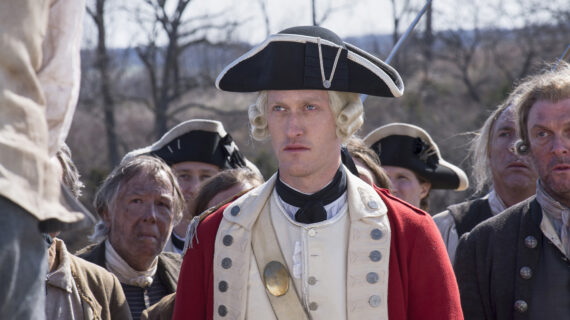
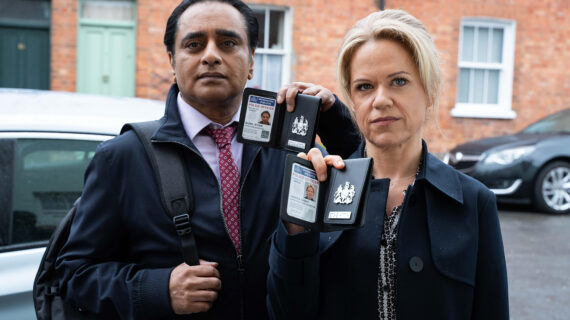
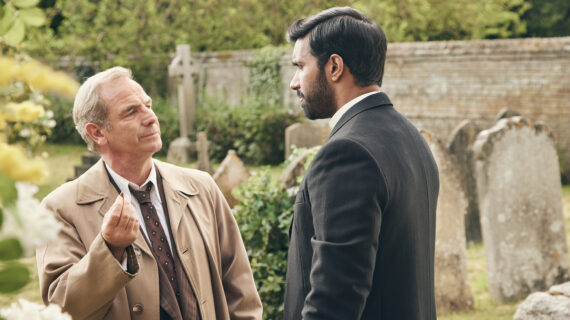


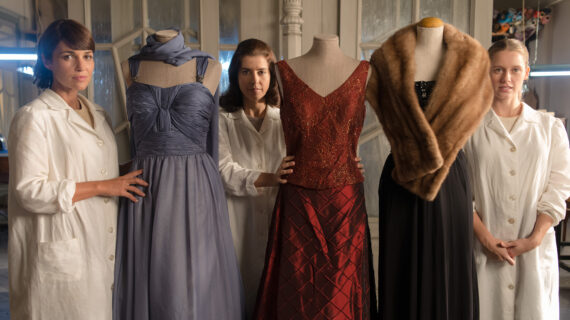
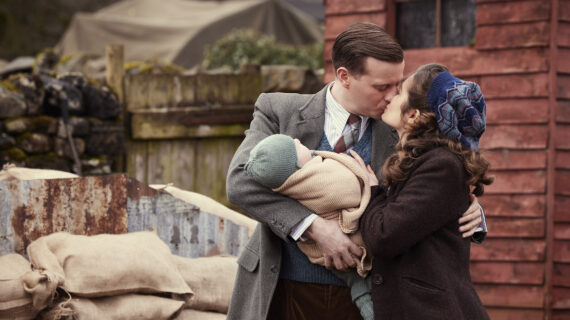


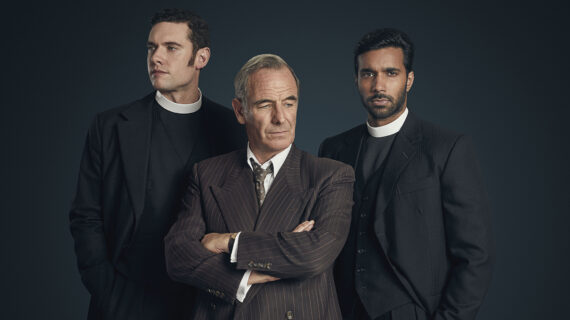
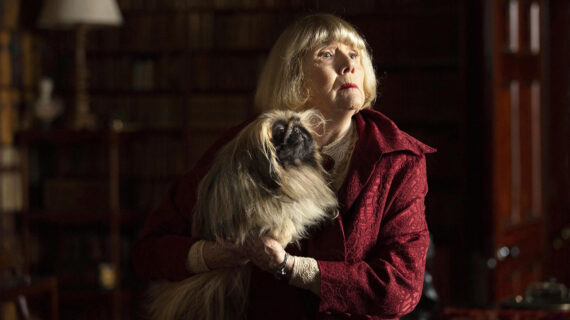

Follow Us